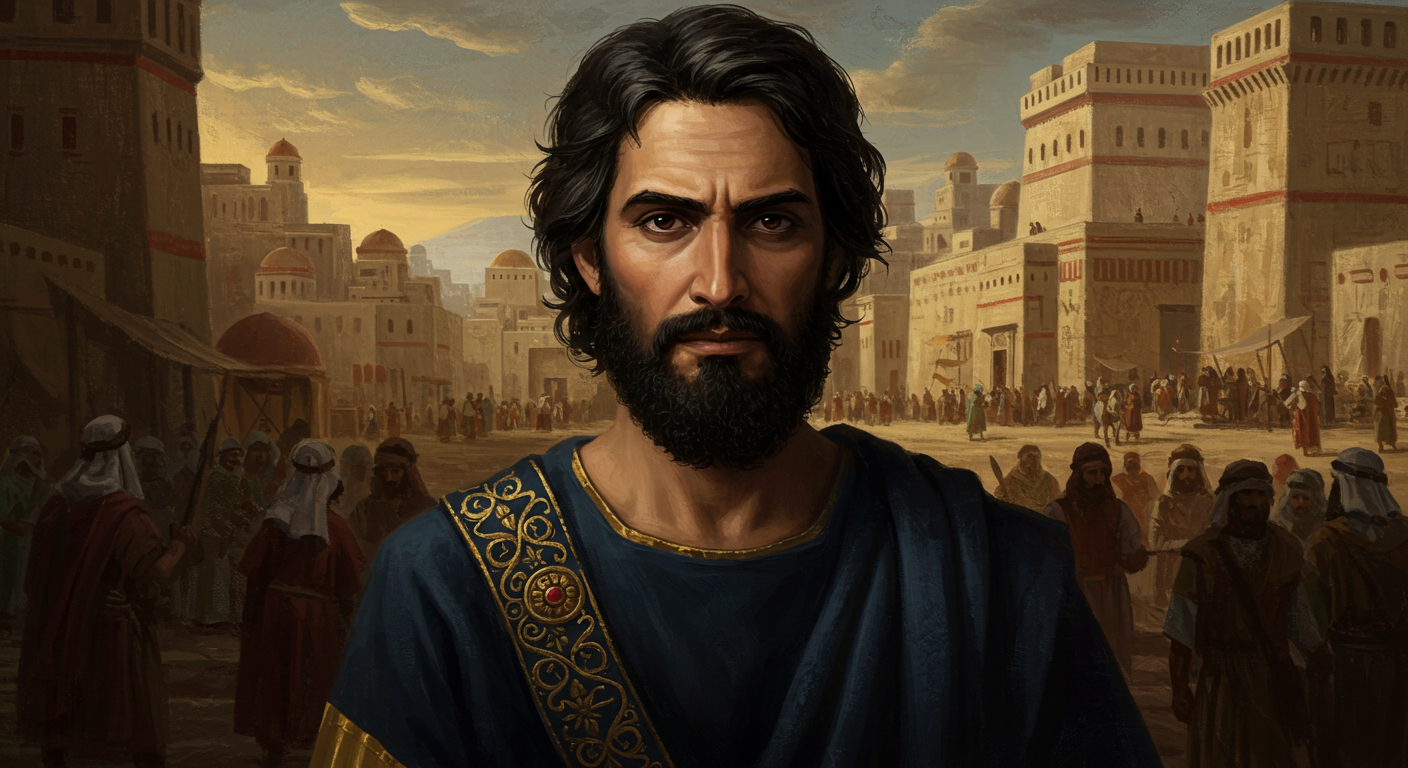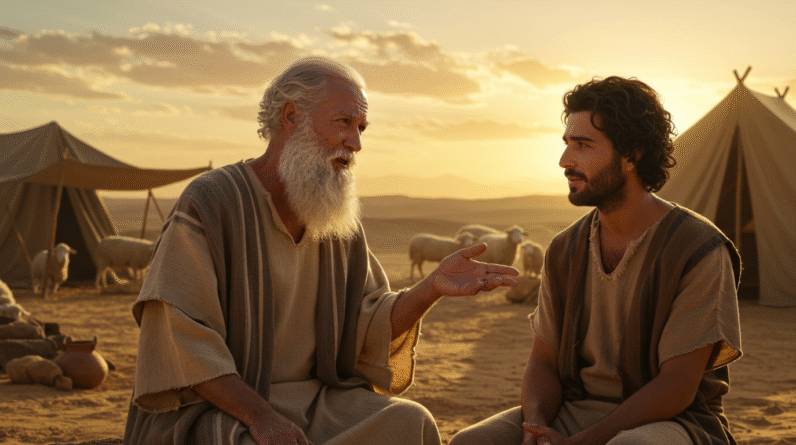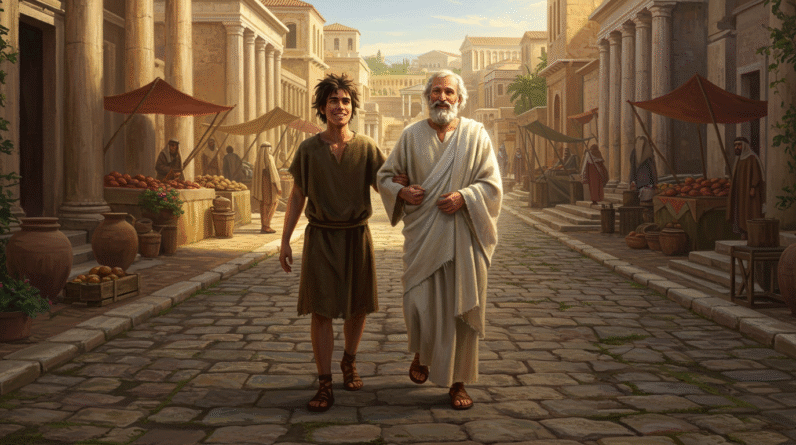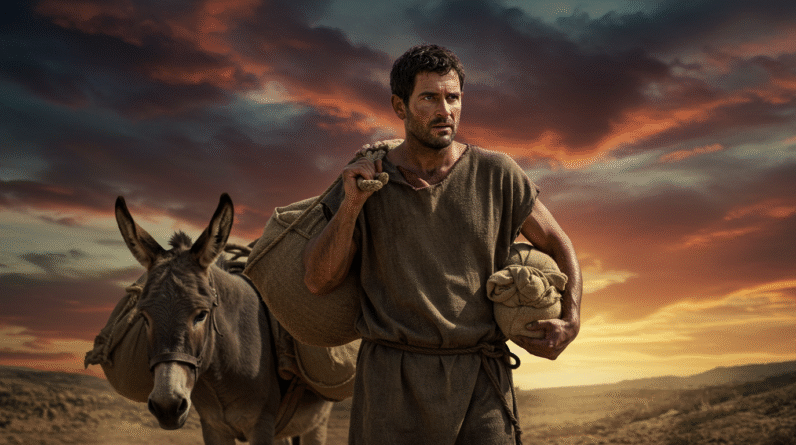Explore Hoshea’s reign and Israel’s fall: a story of political intrigue, rebellion, and spiritual lessons. Reflect on leadership, loyalty, and timeless wisdom.

Introduction
Welcome, dear reader, to a journey through one of the most tumultuous times in Biblical history, marked by the intriguing reign of Hoshea and the eventual fall of the Kingdom of Israel. Within the pages of scripture lies a narrative woven with political intrigue, acts of defiance, and lessons that echo through the corridors of time into our modern lives. The story of Hoshea, son of Elah, captures the complexities of leadership, faith, and the dire consequences of turning away from divine guidance. His role as the last King of Israel before its tragic downfall highlights the interplay between human decisions and their profound, lasting impacts.
Hoshea’s Story in the Bible
Hoshea’s narrative unfolds against a backdrop of unstable political dynamics and spiritual apostasy. His ascent to the throne was marked by the deposition of Pekah, whom he conspiratorially overthrew (2 Kings 15:30). This period was characterized by a flurry of kings each reigning for only a short time, a symptom of the Northern Kingdom’s crumbling stability. Hoshea’s story is detailed most vividly in 2 Kings 17, where his reign and its consequences are chronicled.
Hoshea reigned for nine years, from approximately 732 BCE to 723 BCE. During this time, he tried to navigate the kingdom through the geopolitical pressures exerted by the Assyrian Empire. Initially, he acted as a vassal, paying tribute to Shalmaneser V, the Assyrian king (2 Kings 17:3). This uneasy alliance, however, was short-lived. Hoshea’s later decision to cease tribute payments and seek the help of Egypt marks a pivotal act of rebellion that ultimately led to the siege of Samaria (2 Kings 17:4). The city fell after three years, culminating in the deportation of the Israelites to Assyria, a tragic episode that sealed the fate of the Kingdom of Israel (2 Kings 17:6).
Lessons from Hoshea’s Life
Hoshea’s life leaves us with profound lessons applicable to our own spiritual and political landscapes. Firstly, it underscores the importance of faithfulness to divine commands. The fall of Israel is attributed in the scriptures not just to political missteps, but fundamentally to the people’s failure to honor their covenant with God (2 Kings 17:7-8). Hoshea’s story reminds us that leadership disconnected from spiritual grounding can lead to ruin.
Secondly, Hoshea demonstrates the perils of misplaced alliances and the limitations of human political maneuvers. His decision to ally with Egypt over Assyria stemmed from a failure to recognize where true security and strength lie. It calls us to examine where we place our trust and the alliances we form in our lives, prompting reflection on whether they align with our core values and beliefs.
Connection to Today’s World
The narrative of Hoshea and the fall of Israel is not just a historical recount; it resonates with today’s issues of leadership, loyalty, and the consequences of turning away from spiritual principles. In our world, where global alliances are ever-shifting and leaders are constantly tested, there is a reflection of the choices that led to Hoshea’s tragic end. It prompts modern readers to consider the broader implications of their decisions, both spiritually and politically.
In personal terms, the story serves as a reminder that neglecting one’s foundational beliefs for temporary gains can lead to lasting adverse effects. Whether in business, relationships, or personal development, Hoshea’s tale warns against prioritizing short-term success over long-term values.

Key Bible Verse
A pivotal verse that encapsulates Hoshea’s journey is 2 Kings 17:7: “All this took place because the Israelites had sinned against the Lord their God, who had brought them up out of Egypt from under the power of Pharaoh king of Egypt.” This verse highlights the central theme of divine retribution against the backdrop of human infidelity and unfaithfulness. It serves as a powerful reminder of the consequences that stem from losing sight of one’s guiding principles.
Thought-Provoking Question
In reflecting on Hoshea’s story, consider: When faced with the pressure of external influences, how can you ensure that your decisions reflect your core values rather than succumbing to immediate pressures or gains?
Historical/Cultural Context
Hoshea’s reign occurred during a tumultuous period known as the Iron Age, characterized by the rise and fall of several Near Eastern empires. The Kingdom of Israel was surrounded by powerful neighbors such as Assyria, which made political survival a challenging task. This era was marked by traditional polytheistic religions clashing with the monotheistic practices encouraged by the prophets of Israel. The kingdom’s eventual fall was not solely a political event, but also a spiritual crisis, illustrating the intersecting threads of belief systems, cultural practices, and the demands of statecraft.
Comparison with Other Characters
When comparing Hoshea’s story to other Biblical figures, King Saul comes to mind. Both had promising starts but eventually fell due to disobedience and failure to trust in God’s plans. While Saul’s downfall was more gradual, Hoshea’s was dramatic and marked a clear finality to the Israelite kingdom in the north. Their stories collectively emphasize the necessity for leaders to be grounded in faithfulness and obedience.
Prayer
As you meditate on Hoshea’s journey, consider this prayer: “Heavenly Father, guide us to be leaders and decision-makers who remain anchored in Your wisdom. May our choices reflect Your purposes and lead to peace rather than chaos. Help us learn from the past so we may walk boldly into the future You have set for us. Amen.”
Thank you for embarking on this exploration of Hoshea’s reign and the fall of Israel. May these reflections inspire both personal growth and a deeper understanding of your spiritual journey.







